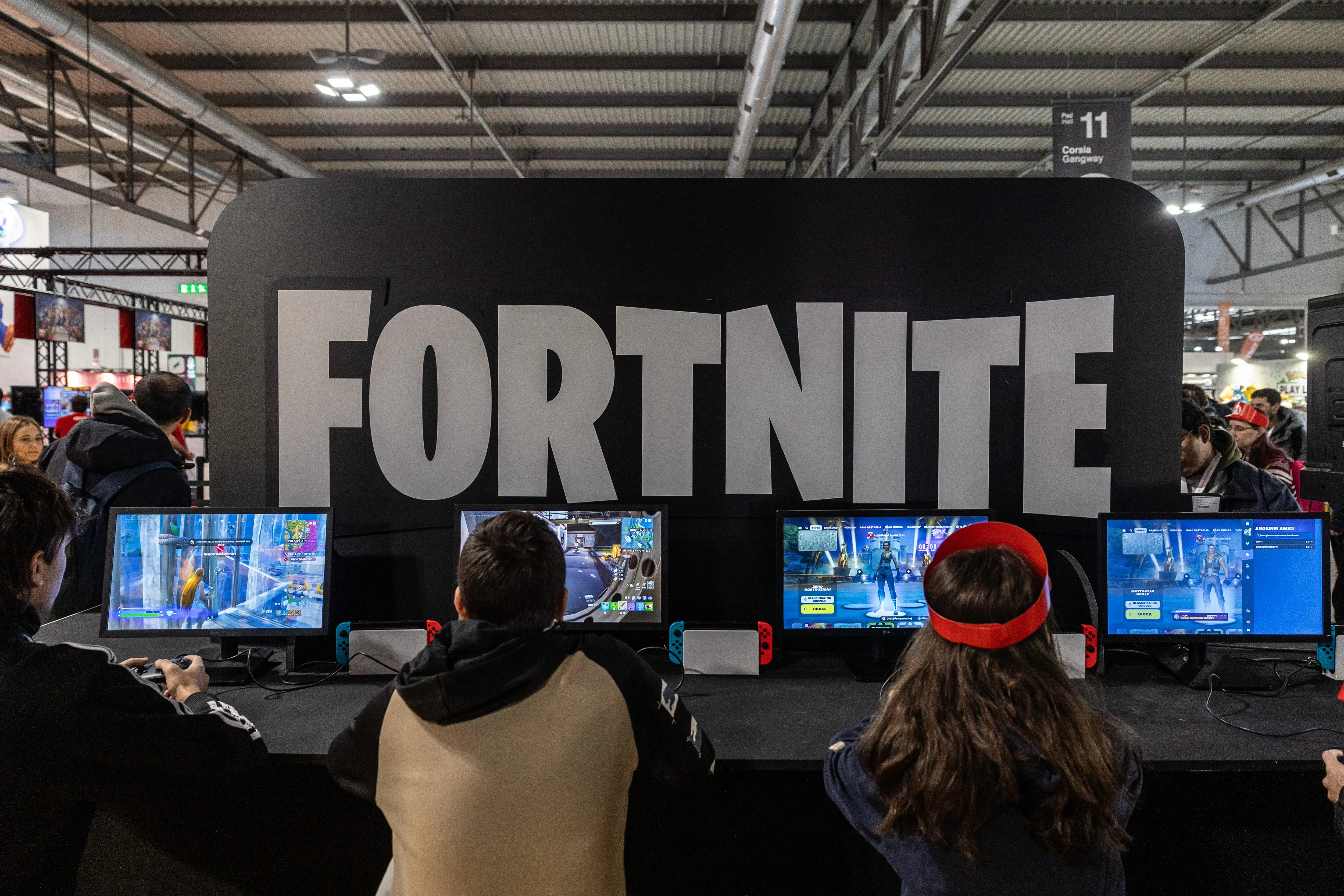Why is 'Fortnite' being sued again? All about Rauw Alejandro's ‘Touching the Sky’ viral dance controversy
-
 MILAN, ITALY - NOVEMBER 22: Fairgoers play video games at the Japanese publisher Nintendo Switch's stand during Milan Games Week & Cartoomics 2024 at Fiera Milano Rho on November 22, 2024 in Milan, Italy. Milan Games Week is the most important video games festival in Italy, featuring the latest news of gaming industry, the most exciting esports tournaments and amazing digital entertainment moments. (Photo by Emanuele Cremaschi/Getty Images)
MILAN, ITALY - NOVEMBER 22: Fairgoers play video games at the Japanese publisher Nintendo Switch's stand during Milan Games Week & Cartoomics 2024 at Fiera Milano Rho on November 22, 2024 in Milan, Italy. Milan Games Week is the most important video games festival in Italy, featuring the latest news of gaming industry, the most exciting esports tournaments and amazing digital entertainment moments. (Photo by Emanuele Cremaschi/Getty Images)Fortnite is once again in the legal spotlight, this time accused of lifting a viral dance straight from Rauw Alejandro’s hit video without giving credit where it’s due. The latest lawsuit centers on the choreography in Alejandro’s “Touching the Sky” clip, a routine created by choreographer Felix “Fefe” Burgos, which is now the subject of a copyright infringement complaint.
The case highlights growing scrutiny over how viral dance moves get repackaged into emotes and sold in gaming worlds like Fortnite and asks, in effect, why is Fortnite being sued again for dance content tied to Rauw Alejandro’s “Touching the Sky”? The stakes revolve around ownership of cultural expression, creator compensation, and the blurred lines between social media fame and digital profit.
Why Fortnite is being sued again and what it has to do with Rauw Alejandro’s ‘Touching the Sky’ dance controversy
Fortnite is being sued again because Epic Games allegedly turned Burgos’s choreography from Rauw Alejandro’s “Touching the Sky” music video into an in-game emote without permission. Burgos, a veteran choreographer for stars like Usher and J.Lo, filed the complaint in late July 2025, stating Epic created a purchasable Fortnite emote named “Touching the Sky” that mirrors his copyrighted routine almost exactly.
The lawsuit explains that Burgos had officially registered the choreography with the U.S. Copyright Office in 2024, shortly after Alejandro’s video launched in May of that year. In February 2025, Fortnite introduced the emote for 500 V‑bucks, and a side‑by‑side comparison submission in the complaint reportedly shows a striking resemblance between the video choreography and the emote animation. Burgos's legal team describes the move as “brazen infringement” and accuses Epic of monetizing his creative work without authorization or compensation.
This isn’t Epic's first dance dispute. Over the years, Fortnite has faced lawsuits from people behind the Carlton dance, the Floss, Milly Rock, and more. Initially, many lawsuits faltered because courts considered short dance moves unprotected. But a key appeals court ruling in November 2023 reversed that logic, affirming that full choreography can qualify for copyright protection. That ruling revived a 2022 case against Fortnite by choreographer Kyle Hanagami and ultimately led to a settlement in early 2024.
Burgos is represented by the same legal team (led by David Hecht) that won that earlier ruling. Their complaint emphasizes that Epic typically negotiates only with younger or less-established creators, often for minimal pay. Burgos claims he was never approached, even though he’s a seasoned industry professional well aware of his choreography's market value.
While Rauw Alejandro himself is not a party to the suit, his video’s widespread popularity underpins Burgos’s argument that the choreography is both recognizable and commercially significant. The suit seeks to halt further use of the emote and recover profits tied to its sales.
TOPICS: Fortnite, Rauw Alejandro
- Fortnite surprises fans as Quentin Tarantino shows up at the Chapter 7 event with hints of a ‘Kill Bill’ crossover
- Fortnite's Ned Flanders NPC shocks players after racking up over 33,000 eliminations
- Fortnite x South Park crossover reportedly in the works — here’s what we know so far
- Did two UEFN creators use 20,000+ bots to boost Fortnite island counts and pocket thousands? Details explored